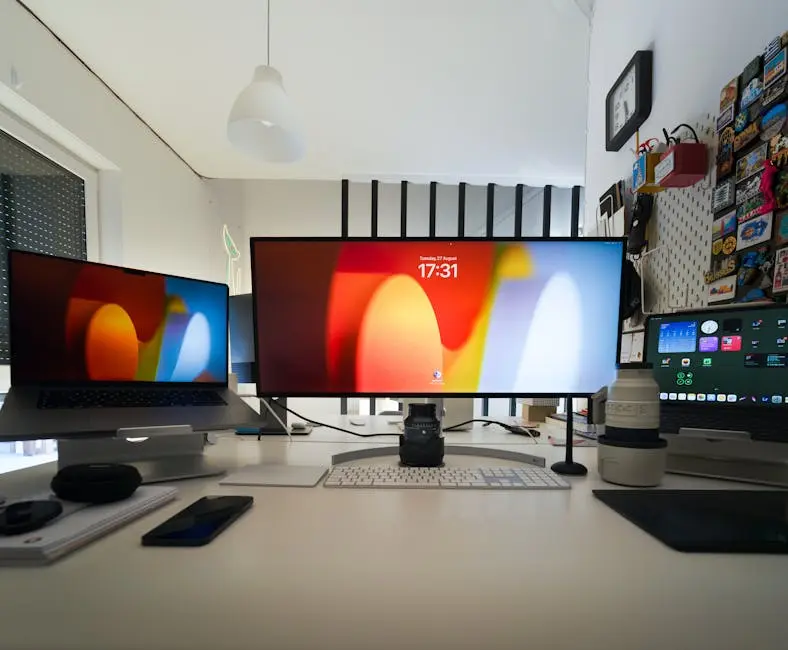Can a Home Theater Be Integrated with Smart Home Technology?
With the rise of smart home technology, many homeowners are seeking ways to seamlessly integrate their home theater systems into their smart environments. This blog will explore how home theaters can be part of a smart home setup, enhancing both convenience and entertainment experiences.
Understanding Home Theater and Smart Home Compatibility
Before integrating, it’s important to understand the compatibility requirements between your home theater components and smart home devices. Identify whether your current setup supports smart technology or whether upgrades are necessary.
Not all home theater components are compatible with all smart home systems, which means examining the specifications of your devices is crucial. Primarily, ensure that your TV, speakers, and other devices can be connected to a centralized control platform. This can be pivotal in eliminating the universal remote dilemma, where numerous remotes clutter the living space. Instead, a single smart device can command a holistic home theater experience, blending seamlessly into the smart home ecosystem. For detailed insights, you can explore smart home integration techniques and their feasibility.
For those looking to create a cutting-edge entertainment room, considering a long-term vision for expandability can be beneficial. It's noteworthy that choosing a system known for regular updates helps maintain compatibility as technology evolves. As noted in the importance of expandability, opting for versatile systems can prevent obsolescence, giving you access to the latest features and device compatibilities.
Choosing the Right Smart Home Platform
Choose a smart home platform compatible with a wide range of devices. Popular options include Amazon Alexa, Google Assistant, and Apple HomeKit, each offering unique features for home theater integration.
The right platform acts as the hub for your entire smart home experience, streamlining control across various devices. If you prefer a voice-activated experience, platforms like Amazon Alexa or Google Assistant can provide comprehensive solutions. These platforms often include specific skills and routines that cater to the nuanced demands of home theater automation.
Apple HomeKit, on the other hand, is known for its security-centric approach and user-friendly interface. It is ideal for those in the Apple ecosystem, ensuring that all compatible devices communicate effectively. As homes continue to evolve technologically, these platforms become fundamental, as emphasized in selecting the right smart home system.
Integrating Smart Speakers and Voice Assistants
Smart speakers and voice assistants can control home theater systems through voice commands. Learn how to connect and use these devices to enhance your overall entertainment experience.
Integrating smart speakers like Amazon Echo or Google Nest Hub into your home theater setup transforms voice commands from a luxury into a necessity. These devices facilitate hands-free control over playback, volume adjustments, and even setting the mood by initiating pre-programmed scenes such as 'Movie Night'. This integration enables an intuitive interaction model reminiscent of futuristic environments.
Moreover, voice assistants offer endless customization possibilities. As observed in practices of customization within smart home technology, users can program their voice assistants to recognize specific phrases, thus streamlining communication and fostering an immersive viewing experience.
Automating Home Theater with Smart Lighting and Climate Control
Smart lighting and climate control can create the ideal environment for viewing. Explore options to automate these elements for seamless theater experiences.
Imagine entering a room where lights dim automatically, blinds close, and the ambient temperature adjusts to your preference as the opening credits roll on your favorite movie. Such experiences are well within reach thanks to advancements in smart lighting and climate automation. Smart bulbs with color-changing capabilities can adapt the lighting to suit different genres or moods, as illuminated in lighting control for home theaters.
The benefits extend beyond mere aesthetics. Automated climate control systems, like smart thermostats, maintain optimal comfort levels for prolonged viewing, ensuring that neither heat nor cold distract from your cinematic experience. This layer of automation adds to the holistic enhancement that smart home technology brings to your private screen wonderland.
Using Smart Hubs for Unified Control
Smart hubs allow for centralized control of various smart home devices, including your home theater. Discover how utilizing a smart hub can simplify managing your entire smart home ecosystem.
A robust smart hub serves as the digital nerve center of a smart home system, efficiently coordinating the operation of all integrated devices including your home theater. It mitigates the complexities of handling multiple apps by consolidating control into a single interface. With smart hubs, you don't just control devices, you orchestrate experiences.
Whether adjusting lighting settings, managing smart speaker volumes, or programming automation routines, a smart hub ensures that every component acts in concert. This not only enhances convenience but significantly reduces the time spent managing individual devices. As highlighted in integrating smart home technology, embracing a centralized control system ensures smoother operations across all smart setups.
Final Thoughts on Home Theater and Smart Home Integration
Integrating a home theater with smart home technology can transform your entertainment experience, offering greater control and automation. By understanding compatibility and selecting the right smart devices and platforms, you can create a seamless and immersive entertainment hub in your home.


